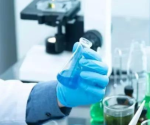AI projected to hit US$16.5B by 2024 in pharma, $97B in medical devices by 2028: EY-Pantheon & Microsoft report | Hyderabad News

HYDERABAD: The artificial intelligence (AI) market in pharmaceuticals is projected to hit US$16.49 billion by 2034 and AI-driven medical devices are set to grow to US$97.07 billion by 2028 with AI now driving drug discovery, clinical trials, personalised healthcare and precision medicine but widespread implementation still remains a major challenge, said a report on “Artificial Intelligence at the Helm: Revolutionizing the Life Sciences Sector” by EY-Pantheon and Microsoft that was released at BioAsia 2025 on Tuesday.
According to the report, there are three key categories of challenges hindering AI adoption within pharma companies – ethical concerns over algorithmic bias and transparency in AI decision making, technical challenges related to data privacy, security and complex regulatory compliance and operational barriers such as shortage of AI-skilled professionals and resistance to change.
“AI is automating repetitive tasks and bringing operational efficiencies across all roles. As AI automates repetitive tasks, professionals must shift toward more strategic, AI-augmented roles,” it said.
In pharmaceutical development, biases in AI models could lead to treatment protocols favouring certain demographic groups, compromising the goal of truly personalised medicine, the report said on ethical concerns.
On technical challenges, it said navigating evolving regulations is critical for AI integration, requiring a strategic and informed approach.
The report outlined five critical pillars for successful AI integration including AI-first business and operating models that embed AI-driven decision-making across functions, technology stack enhancements to support large-scale AI deployment and innovation, and comprehensive AI-ready data strategies to ensure security, compliance, and accuracy.
It also mooted the need for workforce readiness for AI, address change management and interdisciplinary skill development as well as put in place risk and compliance frameworks to ensure AI governance, transparency, and cybersecurity.
Suresh Subramanian, national lifesciences leader, EY-Parthenon India, said, “AI is no longer a futuristic concept—it is fundamentally reshaping the life sciences sector. From accelerating drug discovery to optimizing clinical trials and revolutionizing manufacturing, AI is driving efficiencies across the entire pharma value chain. However, successful adoption requires more than just experimentation. Our AI Maturity Framework provides a structured roadmap to help organizations move from fragmented AI initiatives to enterprise-wide transformation. Organizations that proactively invest in AI maturity today will be the industry leaders of tomorrow.”
Trupen Modi, senior industry executive, pharma and life science, Microsoft, said “Advances in AI are optimising manufacturing and supply chain processes, ensuring efficiency and reliability. AI is also reshaping the regulatory landscape by automating document analysis, streamlining submissions for regulatory approval, and monitoring compliance. This reduces time to market and improves accuracy.”
















